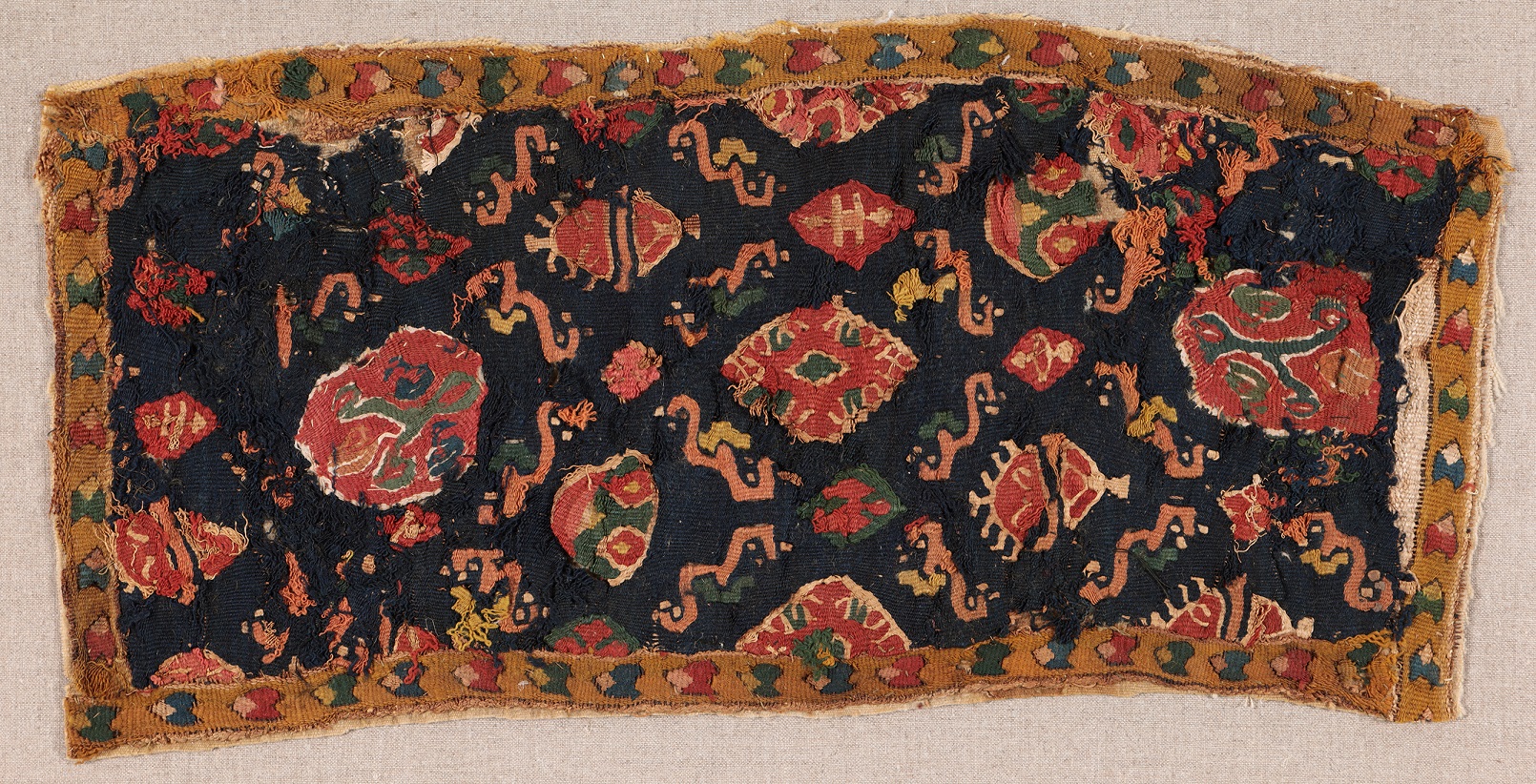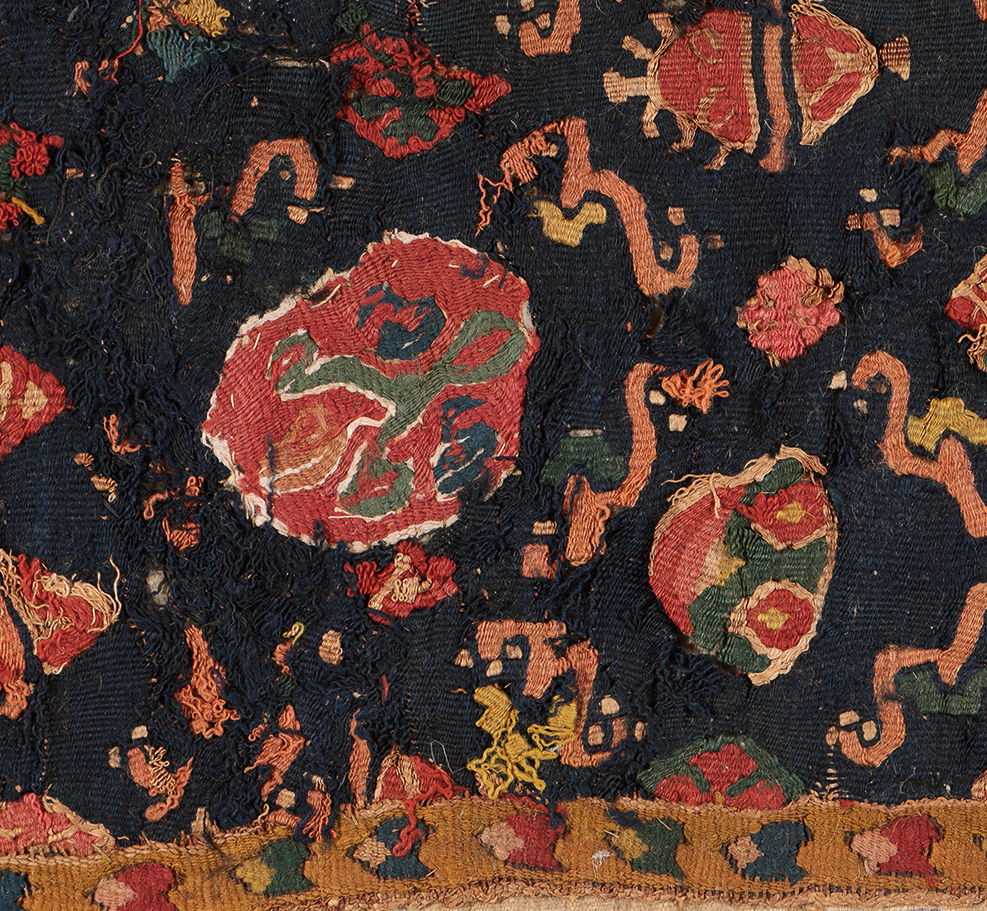This textile comprises several fragments that have been cut out and sewn together on an ecru linen cloth. Small, stylised twigs form a network of lozenges on a bright blue ground in the central segment. Among these are motifs including baskets and bouquets. Others come from different parts of the textile, breaking up the rhythm. The yellow edges, from another fabric, are partially joined in different warp directions.
Origin:
Egypt
Date:
6th - 8th century
Material:
Linen and wool
Dimensions:
49 x 23 cm
Comparisons:
Cf. 126.
Musée des Tissus, Lyon, inv. 891.III.6 (Louvre watercolour, inv. E 29222): layout.
Similar to numerous other examples, it was silk textiles that weavers wished to imitate.
Provenance:
Collection Coptic textiles Fill-Trevisiol: donation
Location:
Musée royal de Mariemont
Woollen tapestry
II. Blue weave
Warp:
natural-coloured linen, S2Z: 7/cm
Weft:
blue, orange, red, green and yellow wool S: 42/cm; natural-coloured linen
Special techniques:
slit tapestry, eccentric weft

